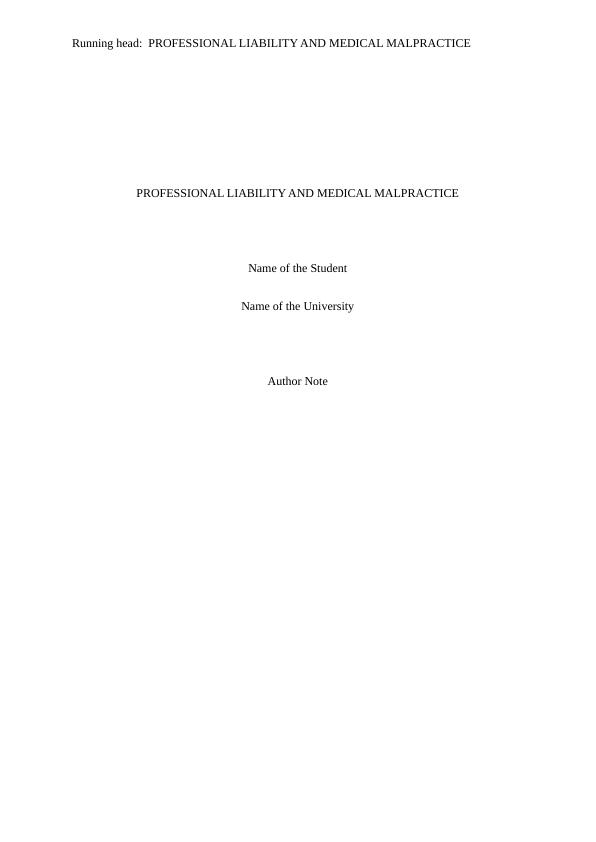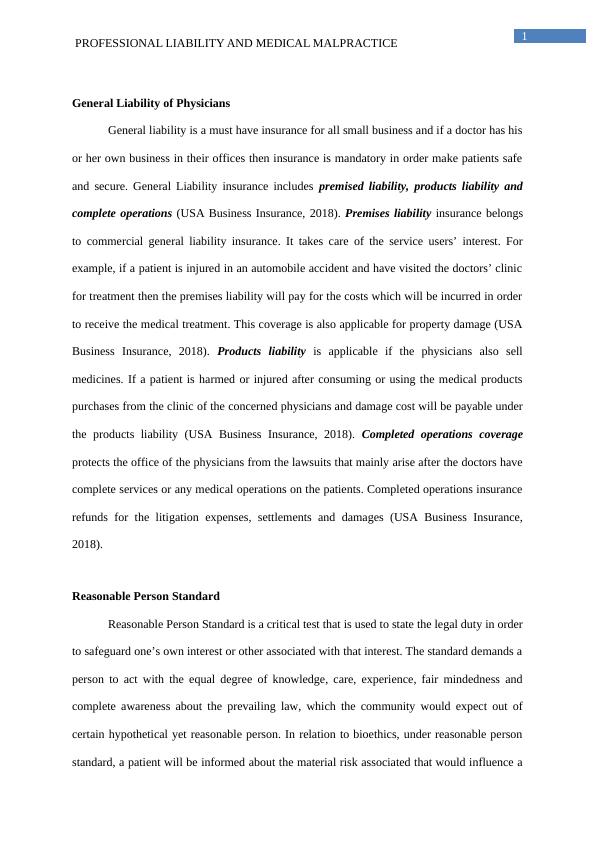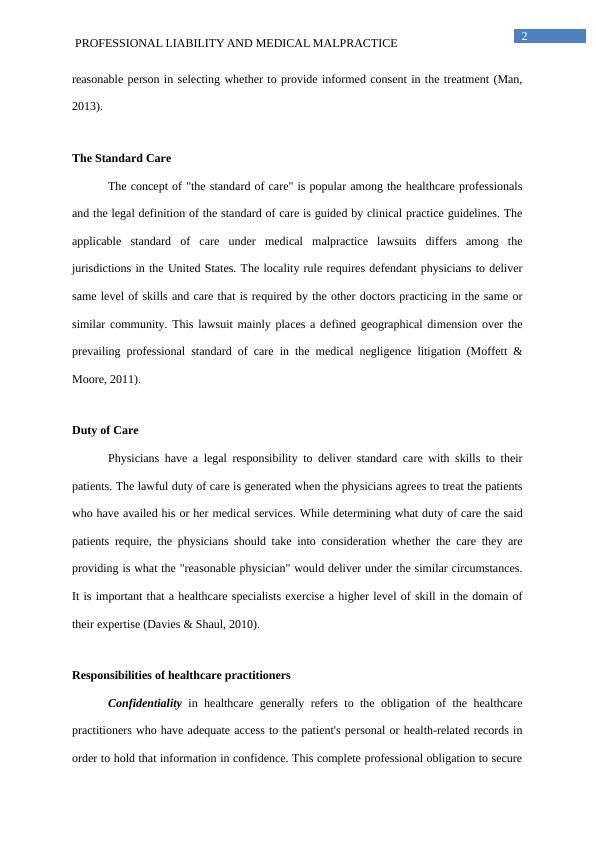Professional Liability and Medical Malpractice
Identify three areas of general liability for which a physician/employer is responsible. Describe the reasonable person standard, standard of care, and duty of care. Briefly outline the responsibilities of health care practitioners concerning privacy, confidentiality, and privileged communication. Explain the four elements necessary to prove negligence. Outline the phases of a lawsuit. Name two advantages to alternative dispute resolution.
Added on 2023-05-31
About This Document
Professional Liability and Medical Malpractice
Identify three areas of general liability for which a physician/employer is responsible. Describe the reasonable person standard, standard of care, and duty of care. Briefly outline the responsibilities of health care practitioners concerning privacy, confidentiality, and privileged communication. Explain the four elements necessary to prove negligence. Outline the phases of a lawsuit. Name two advantages to alternative dispute resolution.
Added on 2023-05-31
End of preview
Want to access all the pages? Upload your documents or become a member.



